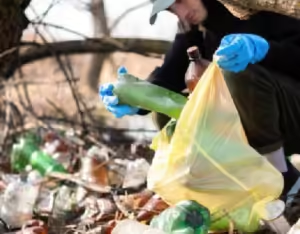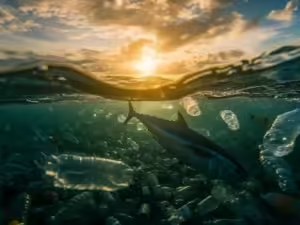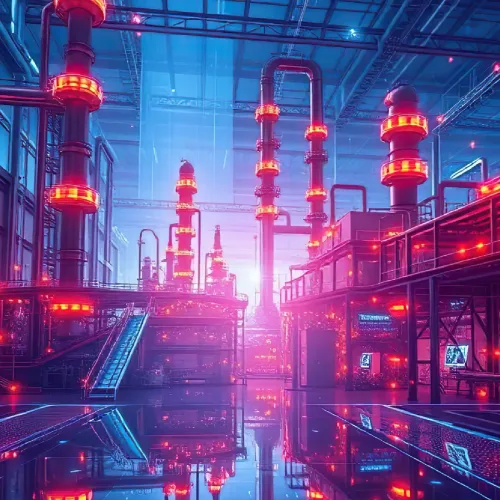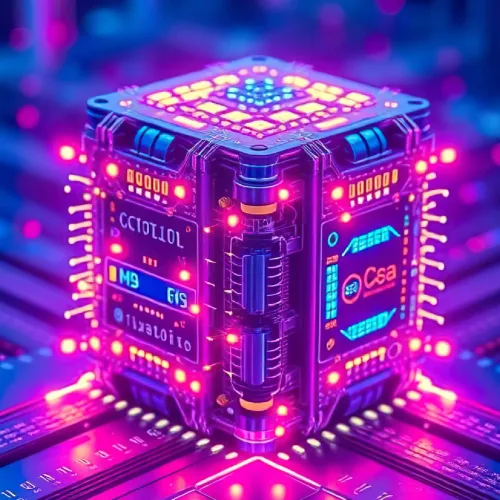Plastic pollution and marine life are very closely linked. Every year, millions of tons of plastic waste enter the oceans, directly harming the marine life. Sea turtles, fish, and seabirds often rely on plastic for food, leading to fatal diseases. In this post, I will explain how plastic pollution affects marine life and share some simple steps that you can take to make a change.
Plastic for Marine life
Marine animals are seriously under threat by plastic. Sea turtles take in plastic bags for jellyfish when they swallow them. This blocks their digestive systems and can lead to their death. Other animals, such as dolphins and whales, got entangled in plastic bits and pieces. They have trouble with moving and breathing, usually getting hurt or drowning in the process.
Plastic also breaks down into tiny particles called microplastics. Small fish and plankton ingest these tiny particles, which then make their way up the food chain. At some point, humans eat seafood that is contaminated with these microplastics, putting our own health at risk.
What Should We Do?

Even though plastic pollution seems like a huge problem, small individual actions can make a big difference. There are a few simple steps you can take:
1. Reduce the use of plastic
Choose items that are reusable like bags, bottles, and containers. By avoiding plastic that cannot be recycled, you can reduce the chances of plastic ending up in the ocean.
2. Demand for strict laws
Support a law that bans one time use plastics and promotes better waste management systems. Make your voice heard by supporting initiatives that tackle the plastic concern.
3. Recycle correctly
You should be aware of what you are recycling. Polluted recycling often ends up in garbage landfills, so make sure your plastic waste is recycled correctly.
4. Raise awareness
Share facts and information with your friends, family, and community. So that the more people knew about plastic pollution and marine life, the better we could fight it.
Protection of Marine Life

Oceans play a vital role in maintaining our climate, providing the food and supporting life on Earth. But plastic pollution is putting all of these ecosystems at risk. Sea turtles, dolphins, fishes, and other marine creatures are suffering as the amount of plastic in their environment increases. From eating plastic to getting trapped in debris, they face serious challenges.
By making small changes in our daily lives, we can reduce plastic waste and prevent further harm to our environment. Reusing products, recycling properly and supporting clean-up efforts may look like small actions, but together they make a big difference. Marine life does not have a voice, but we do. We must step up and help to protect these animals from the dangers of plastic pollution.
Simple Ways to Protect Marine Life
We can keep the oceans clean by making small changes to our lifestyle. Start using reusable bottles and bags. Avoid using plastic straws and cutlery while dining out. Support local businesses that prioritize sustainable practices. These small efforts can collectively reduce the amount of plastic that ultimately ends up in our oceans, that will help to protect marine animals.
Call to Action
Plastic pollution is one of the most significant environmental issues today, and its impact on marine life is life-threatening. Every piece of plastic floating in the ocean contributes to the destruction of so many marine creatures of the ocean. But we can change the situation. By reducing plastic use, joining initiatives to remove plastic, and pushing for better waste management, we can protect marine animals from this growing threat.
So, are you ready to take action? Will you reduce plastic use or join a clean-up effort? The future of our oceans depends on the steps we take today. Let’s work together to protect marine life and restore the beauty of our oceans.




